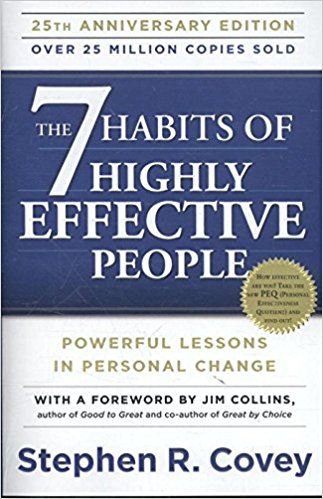Habits are essential to developing routines that will enforce good business choices on a daily basis. When you have a routine that you stick to, you will create a system that will contribute to creating success for you in the long term.
In the eBook series, “Habit Stacking,” the author, S.J. Scott, creates a system of habit building that helps entrepreneurs to establish small actions that you repeat until they become habits. The author always refers to creating patterns that result in positive actions for your business. The key to creating and maintaining positive work habits is to start small and make sure that all of your habits are directly related to your business goals.

7 Habits that Will Improve Your Business
Several entrepreneurs exhibit excellent habits that they helped them to focus on their work and their business goals. Below are some of the best ones that you can use to refer to when you are wondering how to create a system that will continue to help you sustain your success.
Stephen Covey
We’ll start with a book by the same title, “7 Habits of Highly Effective People.” Stephen Covey was a successful entrepreneur and public speaker as well as a successful author and businessman. He believed that business was about relationships, not products or money. He believed that there were seven essential skills of the most successful people that they shared with others. The seven habits he wrote about are listed below along with a brief description.
- Do something.– It’s better to do something than to do nothing. As long as you are doing something positive, you are moving toward something, toward the success of your business. Taking positive actions can lead to mistakes, but you can learn from these mistakes and come back stronger because of the actions you take.
- Begin with the end in mind.– Covey believed that you should begin with the end in mind. This means that you should think about your goals when making your business decisions and every decision you make should reflect on your business goals. If you spend your time envisioning the results you want, you will focus on the important aspects of your business and develop positive habits that will result in meeting your goals.
- Put first things first.– This is one of the hardest things to do as a business owner because it is often difficult to determine which goals are the most important. Keeping a list of your priorities nearby as you plan your day will remind you of what is most important to you. You should also incorporate these ideas into your daily “to do” list so that you know you are always focusing on what is most important to meeting your goals.
- Think win-win.– When dealing with clients, always think about how you can create a win-win situation for both your business and your client. Putting your client first will result in a higher degree of respect from your client, and this may lead to more business opportunities in the future. Having a good work ethics will pay off in many different ways if you develop the habit of putting your customers first.
- Seek first to understand, then to be understood.– This is another positive habit that has to do with business ethics. If you put your clients’ needs over your own, your client will see that you are focusing on what is important to them and they will be more likely to turn into a loyal customer later.
- Synergize.– Synergy has to do with collaboration with your client to achieve a creative goal. By using critical thinking skills and working together with your client can produce better results than working on a project on your own. Also, involving your client in the decisions you make with their project will improve your relationship with them.
- Sharpen the saw.– Sharpening the saw refers to the habit of continual learning that you commit to doing one day at a time. As your business expands to new levels, you need to always keep in mind what skills you need to meet the changing needs of your business and your customers.
Now you know the seven habits that Stephen Covey recommended. His ideas are appropriate for either new startups or established businesses and fit some different situations.

Other Habits to Include in Your Daily Routine
There are other practices that successful business owners follow that help them to stay on task when planning their business goals. Some of the best of these are listed below.
- Stay determined.– The most important habit of successful entrepreneurs is that they stay on target to reach their goals even when the going gets rough. Successful entrepreneurs see failures as obstacles, not as permanent setbacks that will permanently damage their chances for success. This determination leads to a firm resolve that will help you stay on track when you are striving to stretch through the hard times.
- Focus on the little things.– If you are going to make your business work and create a sustainable system, you should remember that little things add up to big results. Most entrepreneurs find out that it is the smallest things that you do on a daily basis that can lead to the bigger opportunities later. Daily tasks that seem menial or trivial may be the one thing that leads to success over the long term.
- Set a timeline for achievement.– Having a business plan is important. But you must also have a plan for when you hope to achieve the goal. If you plan your big goals wisely and set your priorities, you will learn to incorporate these goals into your daily “to do” list and other action plans so that you will stay on target to reach your goals at the time you promised yourself you would reach them.
- Be flexible.– Flexibility is important in entrepreneurship.Your market and your industry will change, and you must learn to adapt to the changes that occur over time. Customer needs will change, too so you should be prepared to make subtle changes that will result in success.
Find your own voice.
Follow these habits and think about how you can include them in your daily routine. Revamp your business plan to include the changes that you have experienced within your industry or due to customer need.
In the end, you must decide which habits will result in your greatest chances of success. This may mean not expecting to come up with the perfect schedule that you will follow or follow particular practices every day. There may be no specific answer that will solve all of your problems of time management. But rather to find your way of sustaining your success by learning to adapt to the changes that will continue to occur.
Develop the system that works best for you and learn from your mistakes. With time, you will learn what works best and see your business soar to new heights.
